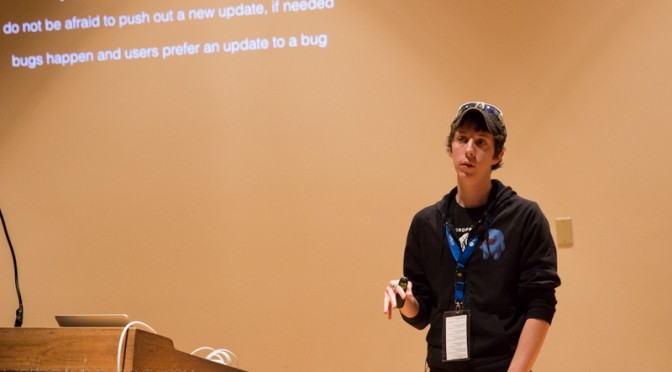As an outdoor enthusiast, Mendel loves backpacking, camping, hiking, and tuning his outdoor survival skills. His technology interests include machine insights, data patterns, structured data, and scaled database infrastructure. After learning Pascal in high school, Mendel went on to work in various roles programming in Python, Perl, C++, ASP .NET, and PHP. When he’s not working, you can find Mendel at a local Austin eatery, sipping on gourmet coffee, and/or prototyping new web apps.
From scrappy beginnings as an entrepreneur and Web consultant for local businesses in Iowa, he found his way to corporate America as a developer, marketer, and inventor. These days, Mendel works as the head GoDaddy Evangelist and spends his time hanging out with developers, designers, entrepreneurs, and web pros around the world and making sure their opinions and suggestions are heard. His job is to bring actionable feedback to the GoDaddy organization to help inform innovation within products, services, documentation, and procedures within the company.
As a WordCamp veteran, Mendel has attended twelve WordCamps on two continents and is responsible for creating the “Pretty Pre” plugin. He’s spoken in numerous places including Tippe Strategic Innovation Academy, National SBDC Conference, and WordCamp Toronto just to name a few.
Summary of Session
Get ready for an engaging and interactive presentation where you’ll learn the value of structured data and how it impacts the appearance of your search results. ‘Making sense of structured data’, will teach you the fundamentals of structured data, show multiple use-cases for its use, and leave you with a clear actionable strategy on how to implement structured data on your own WordPress website.
Google and other search engines use schema.org formatted structured data to power rich snippets in search results, and data crawlers use standardized data to build machine learning muscle. These rich snippets make a search listing stand out, and effect the way someone might interactive with your website based on the listing. This talk focuses on understanding what a schema and markup is, and how you can use the PODS framework to easily add schema.org structured data information to your WordPress content to improve the Google search listing for your content.
Specifically, you’ll take away:
- An understanding of the value of structured data, and how it can increase or decrease the search traffic to your website.
- A solid conceptual knowledge of structured data, and how it relates to other real-world systems.
- The fundamentals of how to use structured data schema entities, and how to implement them on your WordPress site.
- How to leverage PODS framework to easily create re-usable structured data widgets for specific post categories.




